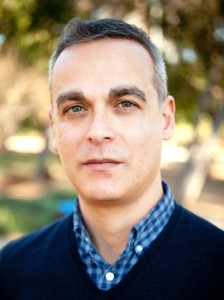Scholars of rabbinic Judaism have long understood the relationships between the late antique sages and the Roman Empire as marked by either assimilation or resistance. Gil P. Klein uses the discipline of architectural history and theory to arrive at a more sophisticated account of Jewish-Roman interaction. He suggests the study of rabbinic and Roman spatial practices, ranging from urban planning and architecture to land survey and the constitution of regional boundaries, has much to contribute to the discussion of Jews and the Empire. By analyzing the architecture and urban layout of cities in Roman Palestine as perceived and inhabited by the rabbis, Klein offers a way to think about the imperial context from a new perspective. An examination of rabbinic literature in conjunction with the archaeological evidence from the Galilee indicates the subtle ways that buildings and boundaries can serve as both imperial agents and as vehicles for transformation, implying a rich and complex set of negotiations between the rabbis and their Roman environment.
 About the Speaker: Gil P. Klein is Assistant Professor in the Department of Theological Studies at Loyola Marymount University. He received his undergraduate degree from the Bezalel Academy in Jerusalem and a PhD from the University of Cambridge and was awarded post-doctoral fellowships from the Frankel Institute for Advanced Judaic Studies at the University of Michigan, as well as in the Center for Jewish Studies at Harvard University. Examining the urban setting of rabbinic Judaism in Late Antique Palestine as part of his doctoral and post-doctoral research has led him to the broader study of the rabbis’ spatial culture. His recent work includes “Torah in Triclinia: The Rabbinic Banquet and the Significance of Architecture,” published in the Jewish Quarterly Review. He is currently completing a book manuscript on rabbinic spatial politics in the late antique city.
About the Speaker: Gil P. Klein is Assistant Professor in the Department of Theological Studies at Loyola Marymount University. He received his undergraduate degree from the Bezalel Academy in Jerusalem and a PhD from the University of Cambridge and was awarded post-doctoral fellowships from the Frankel Institute for Advanced Judaic Studies at the University of Michigan, as well as in the Center for Jewish Studies at Harvard University. Examining the urban setting of rabbinic Judaism in Late Antique Palestine as part of his doctoral and post-doctoral research has led him to the broader study of the rabbis’ spatial culture. His recent work includes “Torah in Triclinia: The Rabbinic Banquet and the Significance of Architecture,” published in the Jewish Quarterly Review. He is currently completing a book manuscript on rabbinic spatial politics in the late antique city.
Gil P. Klein
(Loyola Marymount University)
Moderator: Ra’anan Bouston (UCLA)
Rabbis and Other Jews in the Ancient World Series
Sponsored by the
UCLA Alan D. Leve Center for Jewish Studies
Funding provided by the
Michael & Irene Ross Endowment
Cosponsored by the
UCLA Department of History
UCLA Department of Near Eastern Languages & Cultures